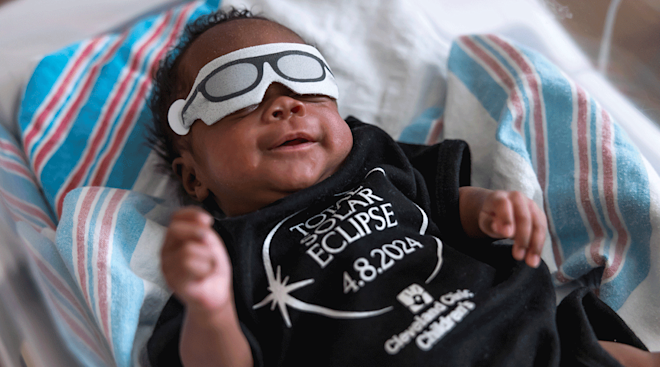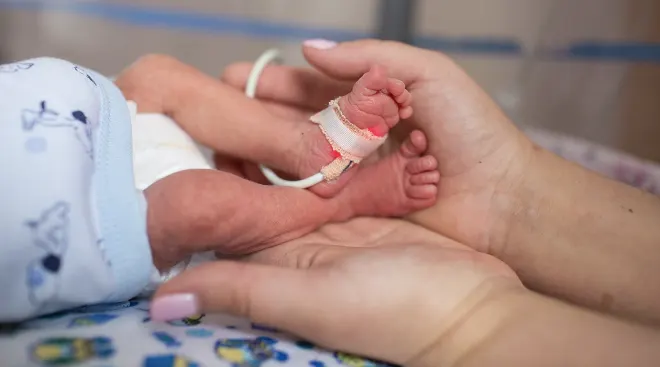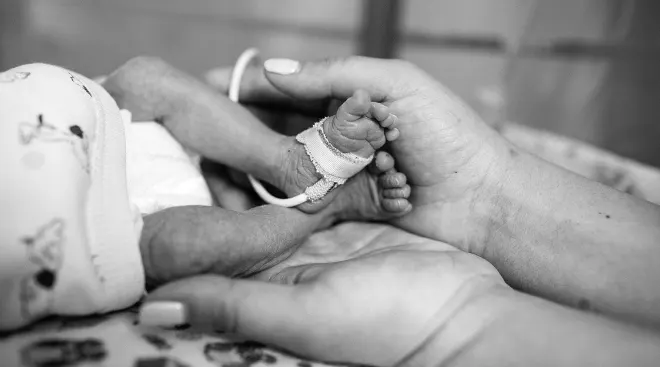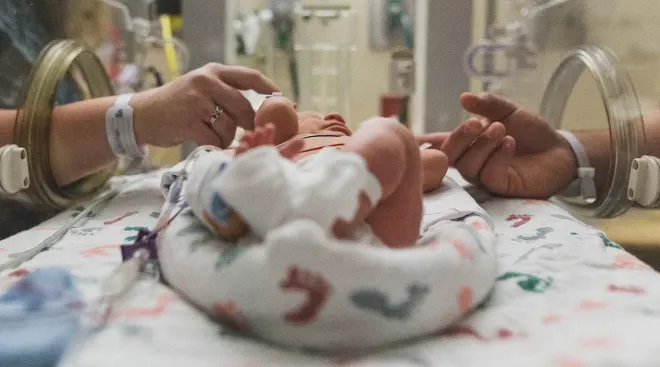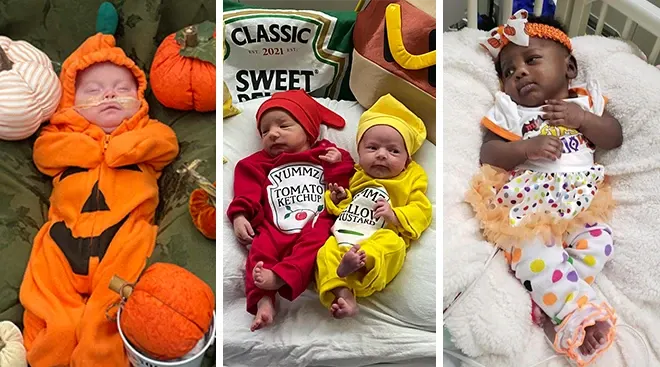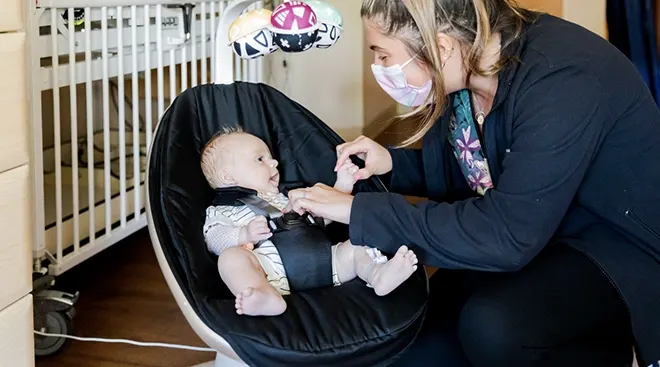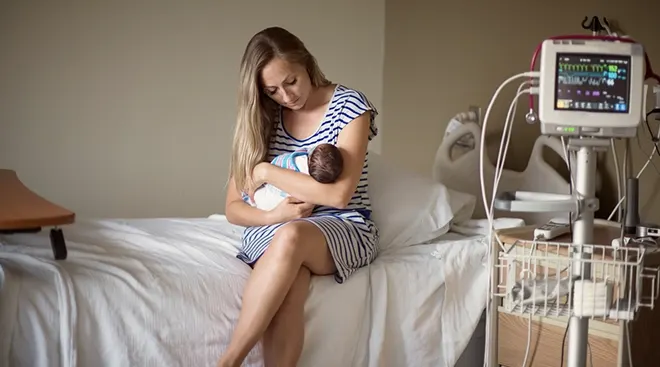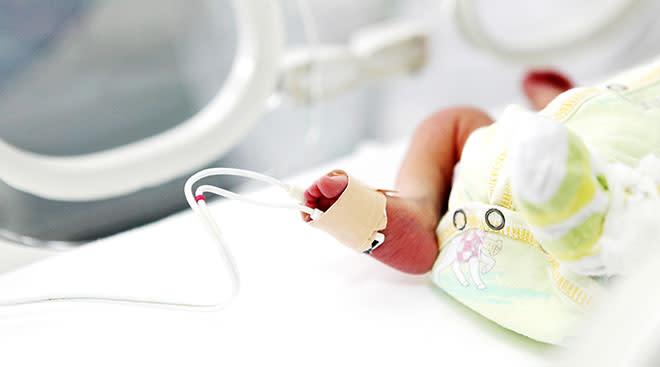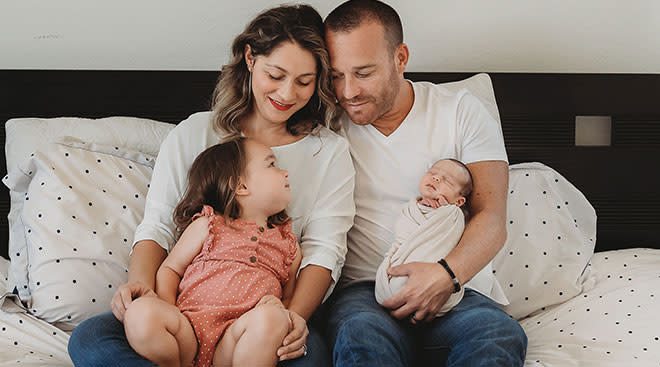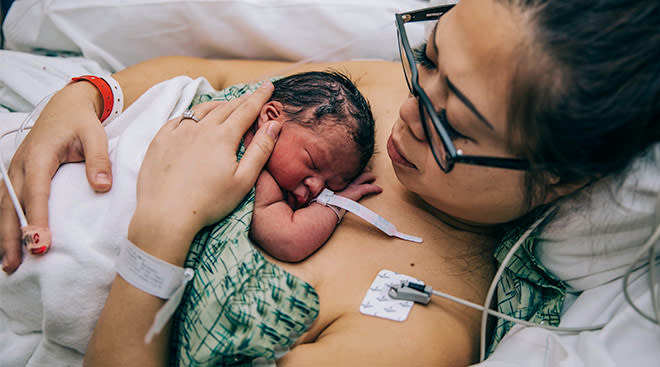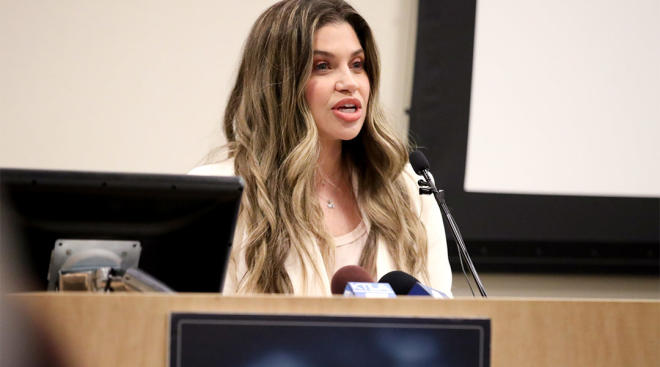Disparities in the NICU: How Black Families Suffer the Effects of Racism
It’s known that doctors routinely dismiss Black women’s pain—but one thing that’s not as widely discussed is that bias can also be seen immediately after birth, affecting Black babies in the neonatal intensive care unit (NICU).
Black families with babies in the NICU have limited access to providers who look like them and share their lived experiences, explains Suzanne Mungalez, PsyD, PMH-C, a licensed clinical psychologist, certified perinatal mental health specialist and owner of The MaMA Space. As a result, their trauma is overlooked and dismissed.
Research shows that Black and Hispanic infants are at risk of receiving care at lower-quality NICUs and experiencing worse care within a NICU. Black infants are also twice as likely to be born preterm and more likely to experience complications during preterm delivery.
The American Academy of Pediatrics (AAP) reports that many Black moms experience racism during NICU hospitalization that impacts the quality of care they receive. Parents describe a lack of Black representation, lack of quality of medical care and not being offered the same resources as white moms. A lot of this is due to cultural and racial prejudices: Look no further than phenomena like Wimpy White Boy Syndrome, in which white boys are believed to fare the worst despite a lack of empirical evidence.
Mungalez says Black families receiving NICU care often experience separation from their babies, which can resurface the trauma of being separated from children due to enslavement, colonization, Child Protective Services, incarceration and police brutality. “This generational trauma lives in our bodies, so much so that a separation from our child, even for something medically necessary like a NICU stay, can trigger trauma responses in ways that aren’t seen in other racial and ethnic communities,” she explains.
She also notes that Black parents sometimes experience condescension, coercion and insulting remarks, and often have trouble being believed—both in the NICU and in other medical settings. Moreover, they may feel less empowered to advocate for themselves and their babies as a result of past medical trauma. “This leads to NICU experiences where Black people are less inclined to connect with their agency and new role as parents because the overwhelming message is that baby is first and foremost a patient, not their child—the provider is the expert, and the Black parent is expected to take a backseat,” she says.
Leah Austin, EdD, president and CEO of the National Black Child Development Institute, says all of these challenges can create an isolating environment for Black parents. “Black parents with NICU experiences often struggle with not knowing what’s going on with their baby’s care, being unsure of what questions to ask or lacking clarity about the process,” she says. She adds that NICU stays are extremely expensive, piling financial strain on families who are already balancing time constraints, work obligations, caring for other children and long travel times to the hospital. On top of that, parents may struggle with postpartum recovery and milk production. “These difficulties are compounded by disparities in care and a lack of culturally relevant support, leaving many parents feeling unsupported,” says Austin.
Experts offer a few ideas for making yourself heard in the NICU as a Black parent.
Seek out providers who share your culture and understand your experience
“If this isn’t possible within the NICU, it may be possible with outpatient care, such as psychotherapists, social workers and lactation support, which is often needed with NICU experiences,” says Mungalez. “Support groups specifically geared toward Black NICU families … can create a sense of community that’s often lost in the perceived silo of the NICU ward.”
Consider working with a doula
“Having a doula to support you in the NICU can be a helpful bridge between families and providers,” says Mungalez.
Don’t take the backseat
“If there are parenting tasks they’re interested in doing that are safe given the baby’s situation, I encourage families to list them out, much like a birth plan, and give it to their providers,” advises Mungalez. “This could include changing baby’s diaper or providing expressed colostrum.” She adds: “One important thing I remind my clients is that their baby isn’t just a patient who belongs to the hospital. Their baby is their baby. They still have a right to parent their baby even in the NICU.”
Look for an emotionally safe environment
“Black parents have historically endured pain, hardness, coldness and disregard; the way to combat this is to provide Black parents with healing, tenderness, warmth and empathy,” says Mungalez.
Seek financial assistance, if needed
The Alliance for Black NICU Families helps provide financial resources to Black families who would otherwise be left with astronomical debt.
Prepare for stressors with a game plan
Austin suggests asking for daily updates from your child’s care team, requesting clarification of medical information when you need it, documenting all conversations and asking for a second opinion, if necessary.
Find support
Again, a doula is great, but you can also partner with an NICU parent advocate if available—or find a peer support group that can help you feel more empowered and provide emotional support during a difficult time.
Of course, overcoming NICU disparities should never fall on Black parents alone. “Providers should also offer equitable access to vital resources, like mental health support, NICU advocates and lactation consultants, who can help reduce the emotional and social burdens families face,” says Austin.
Achieving equality will require that the healthcare system works with parents. “Creating equitable NICU care requires systemic changes—starting with empowering families through education, fostering culturally competent care and holding healthcare systems accountable for ensuring the best outcomes for all families, particularly Black parents,” says Austin.
Please note: The Bump and the materials and information it contains are not intended to, and do not constitute, medical or other health advice or diagnosis and should not be used as such. You should always consult with a qualified physician or health professional about your specific circumstances.
Plus, more from The Bump:
Leah Austin, EdD, is the president and CEO of the National Black Child Development Institute.
Suzanne Mungalez, PsyD, PMH-C, is a licensed clinical psychologist, certified perinatal mental health specialist and the owner of The MaMA Space, which offers holistic support to pregnant and postpartum people. She’s also a childbirth educator, a certified lactation education specialist (CLES) and a trained doula.
Seminars in Perinatology, Unequal Care: Racial/Ethnic Disparities in Neonatal Intensive Care Delivery, June 2021
Pediatrics (American Academy of Pediatrics), Racism and Quality of Neonatal Intensive Care: Voices of Black Mothers, August 2022
University of Alabama at Birmingham, “Wimpy White Boy Syndrome”: Does It Exist in the NICU?, 2023
Learn how we ensure the accuracy of our content through our editorial and medical review process.
Navigate forward to interact with the calendar and select a date. Press the question mark key to get the keyboard shortcuts for changing dates.


































